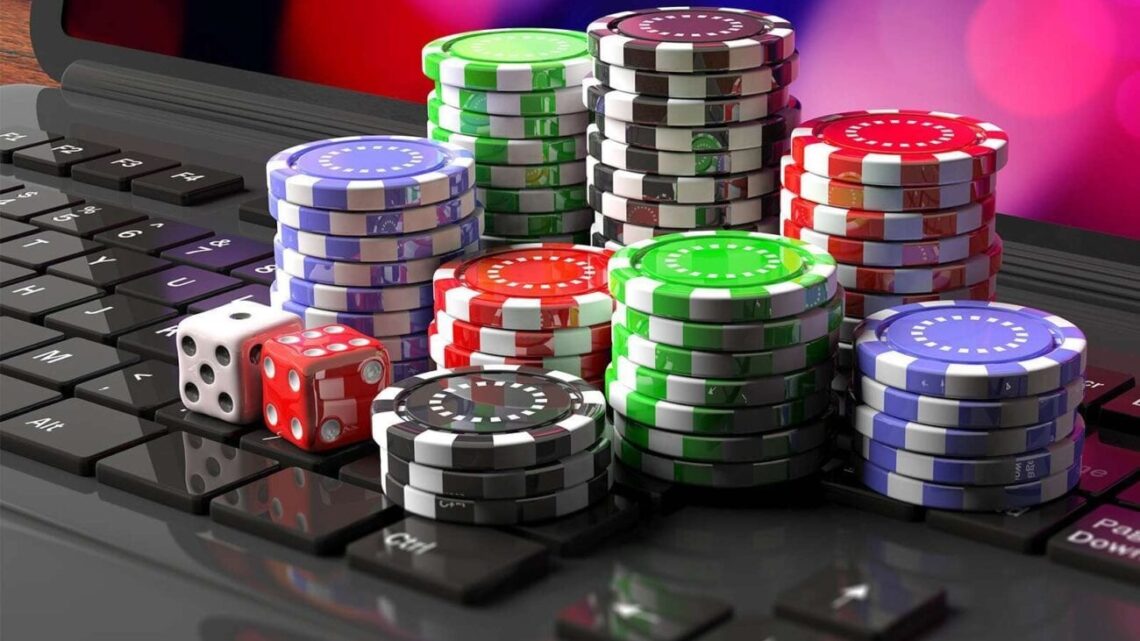How to Safeguard Your Information at Online Casinos: Essential Security Measures for Aussie Gamblers
October 19, 2024Online casinos offer excitement and convenience, but they also require you to share sensitive personal and financial information. Protecting your data is crucial when gambling online. Reputable online casinos employ advanced security measures like SSL encryption to safeguard your personal and financial details.
To ensure your information stays safe, look for casinos that use strong encryption technologies and have clear privacy policies. Choose sites with good reputations and proper licensing. It’s also wise to use unique, complex passwords for each casino account and enable two-factor authentication when available.
Remember, your online security is partly in your own hands. Be cautious about the information you share, use secure internet connections, and keep your devices updated with the latest security patches. By taking these steps, you can enjoy online gambling with greater peace of mind.
Contents
How to Safeguard Your Information at Online Casinos: Essential Security Measures for Aussie Gamblers
Understanding Online Casino Security
Regulatory and Licensing Bodies
Encryption Protocols and Technologies
Choosing Secure Online Casino Platforms
Reputable Casinos and Licensing Info
Evaluating Casino Reviews and eCOGRA Certification
Safeguarding Financial Transactions
Safe Payment Methods and E-wallets
Cryptocurrency Use in Online Gambling
Protecting Personal Information and Identity
Strong Passwords and Two-Factor Authentication
Phishing Awareness and Data Breach Prevention
Enhancing Gambling Safety and Game Fairness
Monitoring Account Activity and Software Updates
Understanding Player Protection and Fairness Audits
Understanding Online Casino Security
Online casino security involves multiple layers of protection to safeguard your personal and financial information. These measures ensure a safe and fair gaming environment, giving you peace of mind while enjoying your favourite casino games.
The Importance of SSL and TLS
SSL (Secure Sockets Layer) and its successor TLS (Transport Layer Security) are crucial for protecting your data when playing at online casinos. These protocols encrypt information as it travels between your device and the casino’s servers, making it unreadable to potential interceptors.
Look for the padlock icon in your browser’s address bar and ‘https’ at the start of the URL. This indicates the site uses SSL/TLS encryption. Most reputable online casinos employ 128-bit or 256-bit encryption, which are industry standards for secure online transactions.
SSL/TLS also verifies the casino’s identity, ensuring you’re not connecting to a fraudulent site. This layer of protection is crucial when you’re playing at a trusted platform such as a top Australian online casino and sharing sensitive details like credit card numbers or banking information.
Regulatory and Licensing Bodies
Regulatory bodies play a key role in maintaining online casino security. These organisations set standards for fair play, data protection, and responsible gambling practices. They also conduct regular audits to ensure casinos comply with these standards.
Some well-known regulatory bodies include:
- Malta Gaming Authority (MGA)
- UK Gambling Commission (UKGC)
- Gibraltar Regulatory Authority (GRA)
When choosing an online casino, look for licences from these reputable authorities. This information is usually displayed in the casino’s footer or ‘About Us’ page.
Licensed casinos must adhere to strict security protocols and undergo regular security audits. They’re also required to keep player funds separate from operational accounts, providing an extra layer of financial protection.
Encryption Protocols and Technologies
Online casinos use various encryption protocols and technologies to protect your data. These include:
- RSA encryption: Used for secure key exchange between your device and the casino’s servers.
- AES (Advanced Encryption Standard): Employed for encrypting large amounts of data quickly and securely.
- HTTPS: Ensures all data transmitted between you and the casino is encrypted.
Many casinos also use firewalls to prevent unauthorised access to their servers. These act as a barrier between the casino’s internal network and external threats.
Two-factor authentication (2FA) is another security measure you might encounter. This requires a second form of verification, such as a code sent to your mobile, in addition to your password when logging in.
Choosing Secure Online Casino Platforms
Selecting a trustworthy online casino is crucial for protecting your personal and financial information. Key factors to consider include the casino’s reputation, licensing, and independent certifications.
Reputable Casinos and Licensing Info
Reputable online casinos are licensed by respected regulatory bodies. Look for casinos authorised by the Malta Gaming Authority or UK Gambling Commission. These organisations enforce strict standards for player protection and fair gaming.
Check the casino’s website footer for licensing details. Legitimate operators display their licence numbers prominently. Verify this information on the regulator’s official website.
Secure online casinos use SSL encryption to safeguard your data. Look for “https” in the website address and a padlock icon in your browser’s address bar.
Evaluating Casino Reviews and eCOGRA Certification
Read reviews from trusted gambling websites and forums. Pay attention to feedback about payout speeds, customer service, and overall reliability.
Look for casinos certified by eCOGRA (eCommerce Online Gaming Regulation and Assurance). This independent agency tests casino games for fairness and audits payout percentages.
eCOGRA-certified casinos display a seal on their website. Click the seal to verify its authenticity and view the latest audit results.
Consider the range of secure payment options offered. Reputable casinos provide multiple trusted methods like credit cards, e-wallets, and bank transfers.
Safeguarding Financial Transactions
Protecting your financial information and transactions is crucial when gambling online. Choosing secure payment methods and understanding cryptocurrency options can significantly enhance your safety.
Safe Payment Methods and E-wallets
PayPal, Skrill, and Neteller are popular e-wallets that offer an extra layer of security for online casino transactions. These services act as intermediaries, keeping your bank details hidden from the casino.
E-wallets often provide faster withdrawals compared to traditional banking methods. They also allow you to set spending limits, helping you manage your gambling budget more effectively.
Credit cards like Visa remain a common option, but be cautious about sharing card details directly with casinos. Always check that the casino’s payment page is secured with SSL encryption before entering any financial information.
Some e-wallets offer two-factor authentication, adding an extra security step to your transactions. This feature can help prevent unauthorised access to your funds.
Cryptocurrency Use in Online Gambling
Bitcoin and other cryptocurrencies are gaining traction in online casinos due to their enhanced privacy and security features. Transactions are pseudonymous, meaning your personal details aren’t directly linked to the transfer.
Crypto transactions are typically faster and come with lower fees compared to traditional banking methods. They’re also irreversible, which can protect you from chargebacks and fraud.
However, the volatility of cryptocurrency values can affect your gambling funds. Be aware of potential price fluctuations when using crypto for casino deposits and withdrawals.
Some online casinos offer crypto-specific bonuses to encourage its use. Always read the terms and conditions carefully, as these promotions may have different wagering requirements.
Remember to use a secure digital wallet to store your cryptocurrencies and never share your private keys with anyone, including the casino.
Protecting Personal Information and Identity
Safeguarding your personal details and identity is crucial when using online casinos. Implementing strong security measures and staying vigilant against potential threats can help keep your information secure.
Strong Passwords and Two-Factor Authentication
Create unique, complex passwords for each of your online casino accounts. Use a mix of uppercase and lowercase letters, numbers and symbols. Avoid using easily guessable information like birthdays or common words.
Enable two-factor authentication (2FA) whenever possible. This adds an extra layer of security by requiring a second form of verification, such as a code sent to your mobile phone, in addition to your password.
Consider using a password manager to generate and store strong, unique passwords securely. This can help you avoid using the same password across multiple sites, which increases your risk if one account is compromised.
Phishing Awareness and Data Breach Prevention
Be cautious of unsolicited emails, texts or messages claiming to be from online casinos. Legitimate casinos will never ask for your login details or financial information via email.
Check the website address carefully before entering any personal details. Fraudsters often use URLs that look similar to legitimate casino sites. Look for the padlock icon and ‘https’ in the address bar to ensure the site is secure.
Keep your computer and mobile devices updated with the latest security patches and antivirus software. This helps protect against malware that could steal your personal information.
Be wary of public Wi-Fi networks when accessing online casino accounts. Use a VPN for added security when gaming on public networks to encrypt your data and protect your privacy.
Enhancing Gambling Safety and Game Fairness
Online casinos employ various measures to protect players and ensure fair gameplay. These include monitoring account activity, regular software updates, and independent audits of games and systems.
Monitoring Account Activity and Software Updates
Keep a close eye on your account activity to spot any unusual transactions. Many online casinos offer tools to help you track your gambling habits and set limits. Enable email or SMS notifications for logins and transactions to stay informed.
Regular software updates are crucial for maintaining security. Always use the latest version of the casino’s app or website. These updates often include important security patches and improvements to protect your data.
Some casinos use artificial intelligence to detect suspicious patterns. This technology can identify potential fraud or problem gambling behaviours, enhancing player safety.
Understanding Player Protection and Fairness Audits
Reputable online casinos undergo regular fairness audits by independent testing agencies. These audits verify that games are not rigged and payouts are accurate. Look for certifications from respected bodies like eCOGRA or iTech Labs on the casino’s website.
Random Number Generators (RNGs) are essential for game fairness. These complex algorithms ensure that game outcomes are truly random and not manipulated. Auditors test RNGs to confirm their reliability.
Player protection measures often include self-exclusion options and cooling-off periods. These tools help you manage your gambling activity responsibly. Some casinos also offer reality checks, reminding you of time spent playing.
Always check a casino’s licensing information. Legitimate gambling authorities require casinos to follow strict rules to protect players and ensure fair gaming experiences.



